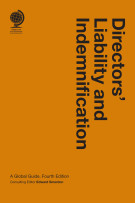Setting up International Schools
20 April 2018

Partner, Bird & Bird LLP
In our latest blog, Mark Abell, UK Partner at Bird and Bird, discusses the long term financial sustainability of international growth amongst UK schools.
The past academic year has seen a great deal of growth and some exciting innovations on the international scene by UK independent schools keen to establish new income streams that will help them ensure their long term financial sustainability. The big question, however, is whether 2018/19 will see more of the same, or is the international bubble about to burst?
The past year has seen a rash of schools signing deals and opening schools overseas. For example, Westminster, Merchiston and Sedbergh have all recently signed up to open schools in China, North London Collegiate is due to open in Singapore and has opened in the UAE and The Royal Grammar School Guildford has opened a school in Qatar .
There are at least another 20 international deals currently being negotiated by UK school across China, South East Asia. India and the Middle East.
So there does seem to be both an, as yet unsatisfied, appetite for international growth amongst UK schools and a body of willing investors eager to invest in establishing them overseas.
That positive view is supported by many of those who are actively involved in the international education field.
David Miles, International Education Director at Sherborne, says: “The growth of UK independent schools moving into the international market is set to continue over the next academic year and beyond. Traditional schools will be looking to tap into established and expanding markets as the demand for their brand and education continues to grow. The blend of rigorous curriculum, outstanding pastoral care, inclusive extra-curricular programmes and inherent networking opportunities make the well-established names outstanding partners in today’s changing global marketplace.”
Bob Ukiah, the Bursar at The Royal Grammar School Guildford and is oversees their school in Qatar and says: "I know of a large number of UK schools that are investigating opportunities overseas and I expect that several of these may announce projects over the coming months. There is a high demand in many regions of the world for good quality British schools; since the RGS Guildford announced the opening of its school in Qatar in September 2016, we have had approaches from a list of countries including China, Egypt and the UAE."
Where exactly are these deals all taking place?
The UAE has previously been the prime area of growth with 548 English medium schools in the market and more expansion on the cards. However, over the last 12 months China has become a very active market, with 545 such schools and much expansion in the pipeline.
Other countries in which UK schools are setting up include India, Malaysia, Vietnam, South Korea and more recently Japan.
However, opening bricks and mortar schools is not the only way in which UK schools are claiming a piece of the international market. For example, Eton has opted for a digital platform, under the name EtonX, to deliver educational services to students in China, instead of the more traditional approach.
It may well be that it is an increase in the use of this technology that becomes the distinctive development in international growth over the next academic year or so.
Indeed, judging from the commercial negotiations that schools are having with their prospective partners, it seems that educational technology is set to become a key part of many school's international strategy, as their local partners begin to understand both its earnings potential and its strategic importance in an international education portfolio.
So where is all of this growth leading?
It would seem likely the international educational services that UK independent schools provide will follow the well-worn track of rationalisation over the next decade or so, resulting in a small number of substantial international players acquiring the international rights to a large portfolio of educational ‘brands’ and leveraging their success through a well-established international infrastructure, detailed knowledge of the subtle differences in demand for education in each market and a well-oiled marketing machine. That is probably no bad thing for UK independent schools, as it will help to ensure the long term success of their international expansion, be it through brick and mortar, educational technology or a blend of the two.
Mark Abell is consulting editor of Educational Institutions published by Globe Law and Business













Any comments - send us an email